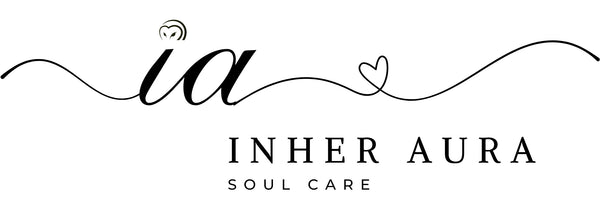Series: (Un)Popular Opinions | Category: Shifts Happen
Shifts are happening—and not all of them for the better.
According to a 2023 study by McKinsey & Company, corporate commitments to DEI have seen a significant decline, with nearly 30% of companies reducing their initiatives in response to political and economic pressures. In 2025, as organizations boldly and quietly reduce their DEI efforts and political forces actively dismantle policies meant to foster inclusivity, the communities most affected are left to bear the weight of these decisions in silence. But we cannot remain silent. In recent months, we've witnessed a troubling rollback of Diversity, Equity, and Inclusion (DEI) initiatives, driven by executive orders and corporate retreats from commitments once heralded as long overdue. Notably, companies such as Meta, McDonald's, Amazon, Ford, Target, Walmart and Lowe's have scaled back their DEI programs in response to political and economic pressures. (foxbusiness.com)
The Real Impact of Rolling Back DEI
When organizations pull back from DEI, they are not simply making a business decision—they are making a statement about who and what they value. This rollback disproportionately affects marginalized communities, stripping away resources, representation, and opportunities that were already hard-fought and still insufficient. It signals to employees of color, LGBTQ+ individuals, women, and other underrepresented groups that their place in these spaces is conditional, their advancement optional, and their voices expendable.
For many, DEI was never a favor—it was a response to systemic barriers that have long shaped workplace and societal inequities. Research from the Harvard Business Review highlights how companies with strong DEI programs experience greater innovation, higher employee satisfaction, and increased financial performance. The dismantling of these initiatives exacerbates these barriers, allowing disparities in hiring, promotions, and pay equity to persist unchecked. It undermines mentorship programs, professional development pipelines, and corporate cultures that were, at best, beginning to evolve toward genuine inclusivity.
What It Means When People Support Removing DEI
The push to erase DEI is often framed under the guise of “fairness” or a rejection of “divisive” policies. But let’s be clear—dismissing DEI is not a neutral act. It is an endorsement of the status quo, where power remains concentrated in the hands of those who have historically benefited from exclusionary practices. It disregards the lived experiences of those who have been systematically marginalized and ignores the wealth of data proving that diverse and inclusive workplaces are not just ethically sound, but also financially and operationally stronger.
Supporting the removal of DEI initiatives is a choice to remain comfortable with inequity. It is a signal that the discomfort of those accustomed to unearned advantages is prioritized over the real, lived struggles of those fighting for a fair shot. And it is a dangerous precedent—because if DEI is “too much” today, what else will be deemed expendable tomorrow?
“DEI Is Not a Threat, It’s a Gift”
Alicia Keys captured the truth so simply yet powerfully: “DEI is not a threat, it’s a gift.” DEI initiatives are not about taking something away from one group to give to another. They are about expanding opportunities, enriching workplaces, and ensuring that talent, innovation, and leadership are not stifled by bias and outdated power structures.
To frame DEI as a threat is to engage in fearmongering and misinformation. The real threat is a world where talent goes unrecognized due to prejudice, where voices are muted due to fear, and where organizations operate in echo chambers rather than thriving through diverse perspectives. The consequences of this are already evident—recent data from the EEOC shows a rise in workplace discrimination complaints, underscoring the urgent need for robust DEI policies. The real threat is regression.
The Response on the Ground, Online and ‘Bottom Line’
Consumers and activists are taking action in response to the rollback of DEI initiatives. Many are boycotting companies that have pulled back on their commitments, returning previously purchased items, and actively sharing which corporations have both publicly and silently abandoned DEI efforts. Social media has become a battleground for accountability, with users exposing performative allyship and pressuring companies to take meaningful stances.
In contrast, companies that steadfastly support DEI are witnessing positive outcomes. For instance, Costco has maintained its DEI commitments despite external pressures and has reported significant profits, with $7.4 billion in earnings last year. Similarly, JPMorgan Chase's CEO, Jamie Dimon, has emphasized that the company's DEI efforts lead to "more innovation, smarter decisions and better financial results" for both the company and the economy. (businessinsider.com)
In response to consumer advocacy and the proven financial benefits of DEI-supportive companies, some corporations are attempting to rebrand DEI efforts under different names, avoiding the acronym while maintaining some aspects of the programs. However, these semantic shifts do not go unnoticed—consumers and employees are demanding transparency, pushing back against hollow gestures, and insisting that companies take real, sustained action rather than quietly retreating from progress.
What We Must Never Forget
We are living in a time that will be studied, scrutinized, and remembered for generations to come. We must not forget the gaslighting, where calls for equality were twisted into accusations of exclusion. We must not forget the allies who retreated when the fight became inconvenient. We must not forget the companies that proved their “commitments” were just performative gestures, easily abandoned when met with pushback.
But most importantly, we must never forget our power. Movements are not built on corporate statements; they are built on people who refuse to be erased. Shifts happen, but so does resistance. And history has shown that no matter how many times the pendulum swings backward, those committed to progress will always find a way to push it forward.
Breaking the silence is just the beginning. What we do next will define the future. Now is the time to demand accountability, support organizations that uphold DEI, and continue advocating for workplaces and institutions that reflect the diversity of our world.
Popular or Unpopular Opinions?
This blog has laid out the stakes, the consequences, and the responses—but are these perspectives widely accepted or controversial? Do these views align with the mainstream, or do they challenge dominant narratives? What do you think about the current shifts in DEI? Do you believe companies should be held accountable for rolling back their commitments, or do you think DEI initiatives have gone too far? Share your thoughts—let’s have the conversation.
Does this piece reflect popular or unpopular opinions? Let’s talk about it.
Leave a comment below or on social media.
EXPLORE MORE:
Curating an Authentic Community for Women: Who's Really in Your Aura?
Breaking the Silence: The Power of Community in Overcoming Loneliness
_____________________________________________________________________________________

